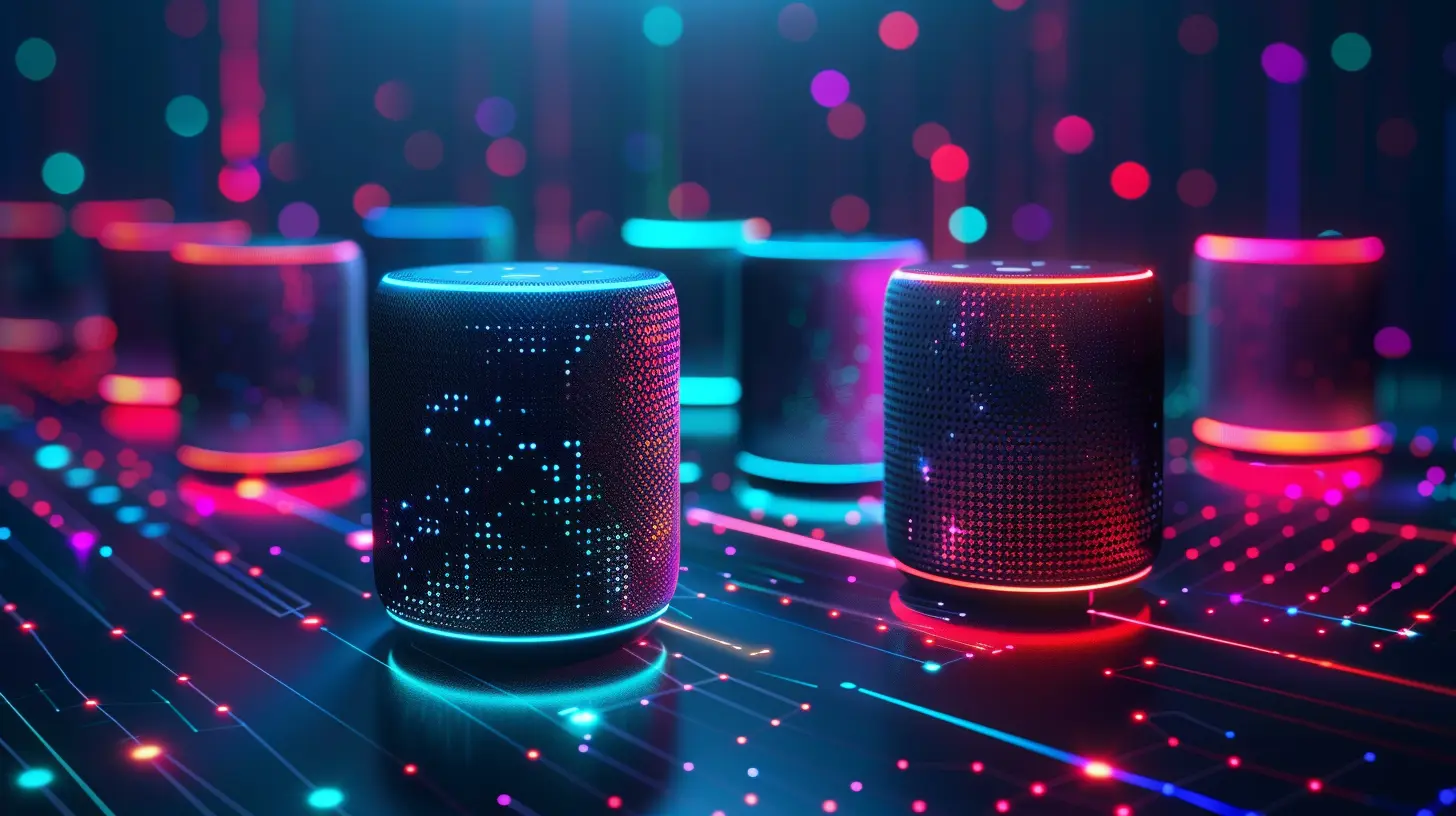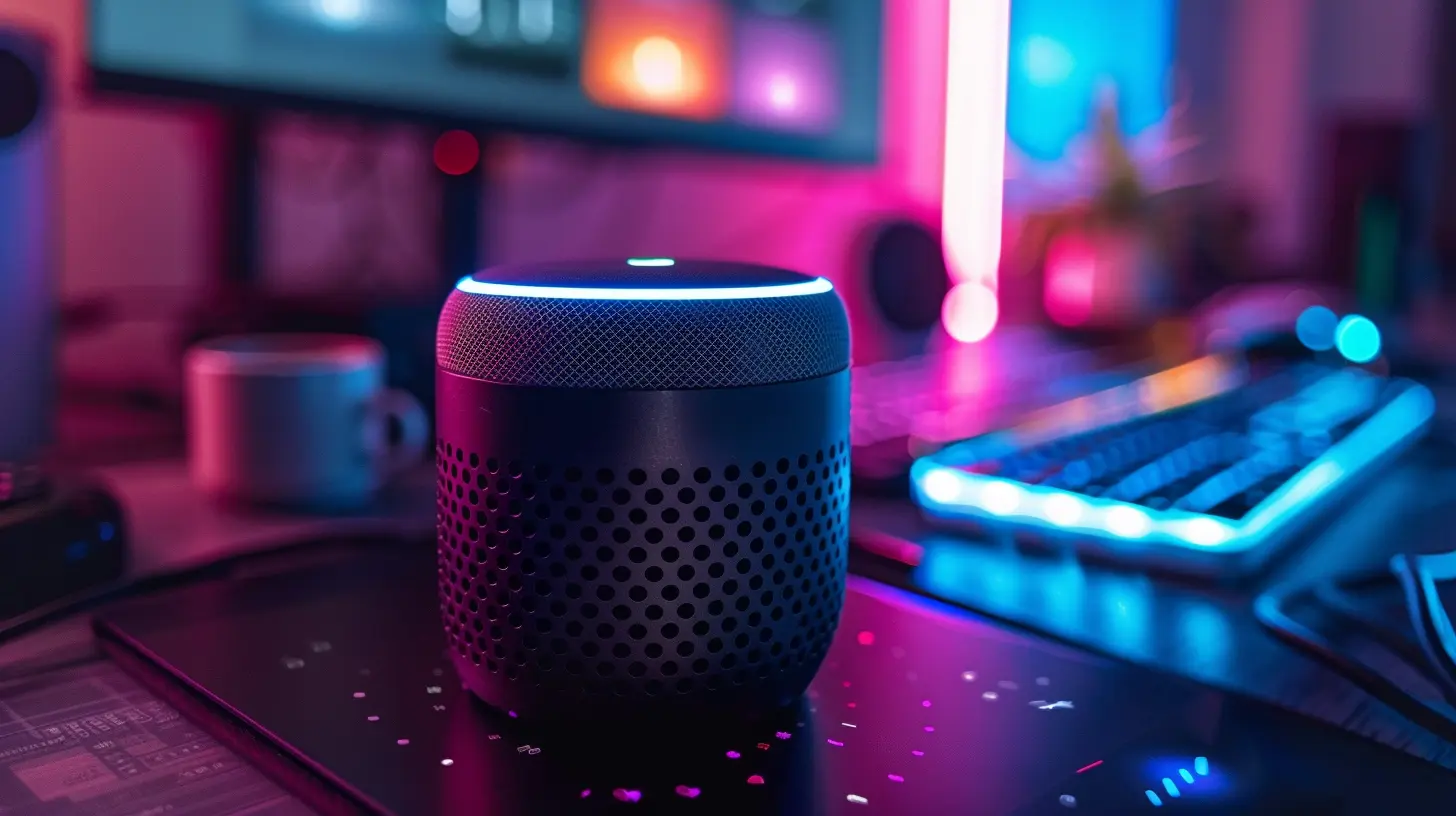Voice Assistants vs. Privacy: Balancing Convenience and Security
4 May 2025
Voice assistants have revolutionized the way we interact with technology. Whether it's asking Alexa to play your favorite song, setting reminders with Siri, or using Google Assistant to control smart home devices, these AI-powered helpers make life easier.
But with all this convenience comes an important question—what about privacy? Are voice assistants always listening? Who has access to our voice data? And most importantly, how can we strike the perfect balance between convenience and security?
Let’s break it all down.

The Rise of Voice Assistants
Voice assistants have become an integral part of our daily routine. They’re in our smartphones, smart speakers, cars, TVs, and even household appliances. The technology behind them, powered by AI and machine learning, continues to evolve, making them smarter, faster, and more intuitive.Why We Love Voice Assistants
There’s no denying that voice assistants offer incredible benefits:- Hands-Free Convenience – No need to type or tap; just ask your assistant to do the task.
- Smart Home Control – Adjust lights, lock doors, and control appliances with a simple voice command.
- Productivity Boost – Set reminders, check calendars, and send messages effortlessly.
- Instant Answers – Get quick responses to questions without searching manually.
- Entertainment On Demand – Play music, audiobooks, and podcasts without lifting a finger.
Sounds almost too good to be true, right? Well, there's a catch.

The Privacy Concerns Surrounding Voice Assistants
With great convenience comes great responsibility. The biggest concern most users have is privacy. And honestly, it’s a valid concern.Are Voice Assistants Always Listening?
This is probably the most common worry people have. Technically, voice assistants don’t actively listen all the time. They wait for a wake word (like "Hey Siri" or "Alexa") before they start recording. However, there have been reports of accidental activations, which raises concerns about unintended recordings.Who Has Access to Your Voice Data?
Whenever you use a voice assistant, your voice commands are processed in the cloud. This means:- Your voice data is sent to company servers (Amazon, Google, Apple, etc.).
- It can be stored and analyzed to improve AI accuracy.
- In some cases, employees or contractors review snippets of recordings for quality control.
Although tech companies claim they handle data responsibly, the idea of strangers listening to personal conversations can be unsettling.
Is Your Data Secure?
Even if you trust these companies, there’s always the risk of data breaches. Cybercriminals are constantly looking for ways to exploit vulnerabilities. If a security breach happens, sensitive voice recordings could end up in the wrong hands.
Finding the Right Balance: Convenience vs. Privacy
So, how do we enjoy the benefits of voice assistants without compromising privacy? Fortunately, there are ways to make your interaction with them safer.1. Adjust Privacy Settings
Most voice assistant platforms provide privacy controls. Here’s what you can do:- Turn Off Voice Recordings – Some platforms allow you to opt out of storing voice data.
- Delete Past Recordings – Periodically clear your voice history to minimize stored data.
- Control Microphone Access – Restrict app permissions so your assistant isn't always active.
2. Use Mute Buttons
Most smart speakers come with a mute button that disables the microphone. When you're discussing something private, just hit the mute button to be extra safe.3. Limit Third-Party Integrations
Many voice assistants connect with third-party apps. However, these integrations sometimes come at the cost of privacy. Be selective about which apps you grant access to your assistant.4. Enable Two-Factor Authentication (2FA)
If your assistant is linked to sensitive accounts (emails, payments, etc.), enabling 2FA adds an extra layer of security. Even if hackers gain access, they’ll have a harder time getting through.5. Use Offline Mode (If Available)
Some voice assistants, like Apple's Siri, offer on-device processing for certain tasks. This means your commands are processed directly on your device without being sent to the cloud. If privacy is a top priority, consider assistants with this feature.6. Review Privacy Policies
Nobody enjoys reading long, complicated privacy policies, but it’s worth taking a quick look. Understanding how your data is handled can help you make informed decisions.
Are Voice Assistants Worth the Risk?
At the end of the day, voice assistants are designed to make life easier. But are they worth the potential privacy risks? That depends on your personal comfort level.If you value convenience over privacy, keeping your device’s default settings may not be a big deal. But if you’re privacy-conscious, taking extra precautions can help you stay secure while still reaping the benefits.
The Future of Voice Assistants & Privacy
Tech companies are becoming increasingly aware of privacy concerns. As a result, we’re seeing more features that give users control over their data, such as:- Stronger Encryption to protect voice recordings.
- On-Device AI Processing to reduce cloud dependency.
- More Transparency regarding how data is collected and used.
The future may even bring privacy-first voice assistants that prioritize security without sacrificing convenience. Until then, staying informed and tweaking settings is the best way to maintain balance.
Final Thoughts
Voice assistants are here to stay, and there’s no denying their convenience. But with any smart technology, privacy should never be an afterthought.By understanding how voice assistants work, adjusting privacy settings, and being mindful of potential risks, you can enjoy their benefits without constantly worrying about who’s listening.
So, what do you think? Are you comfortable using voice assistants, or do privacy concerns make you hesitant? Either way, finding the right balance between convenience and security is a personal choice—one that should be made wisely.
all images in this post were generated using AI tools
Category:
Voice AssistantsAuthor:

Marcus Gray
Discussion
rate this article
8 comments
Miriam Diaz
Whispers of convenience lure us in, but how deep does the rabbit hole of privacy truly go?
May 15, 2025 at 10:19 AM

Marcus Gray
The rabbit hole is deeper than we realize; while voice assistants offer convenience, they often compromise our privacy in ways we may not fully understand. Balancing these aspects is crucial.
Gideon McGrath
Great article! It's crucial to navigate the balance between convenience and privacy in our tech-driven world. As we embrace voice assistants, staying informed and proactive about our security can empower us to enjoy their benefits without compromising our personal information.
May 8, 2025 at 2:43 AM

Marcus Gray
Thank you! I'm glad you found the article helpful. Striking that balance is essential for a safer tech experience.
Andrew McPhee
This article provides a thoughtful examination of the essential balance between leveraging voice assistants for convenience and safeguarding user privacy. It highlights the need for ongoing discussions and advancements in technology to ensure that user security remains a priority without compromising accessibility. Great insights!
May 7, 2025 at 8:39 PM

Marcus Gray
Thank you for your thoughtful feedback! I'm glad you found the article valuable in exploring the balance between convenience and privacy.
Wendy Thompson
This article astutely highlights the paradox of voice assistants: they offer unmatched convenience while jeopardizing user privacy. As we integrate these technologies into our lives, it's crucial to demand transparency and robust security measures from companies to ensure that user data isn't a mere trade-off for functionality.
May 7, 2025 at 11:36 AM

Marcus Gray
Thank you for your insightful comment! Balancing convenience and privacy is indeed crucial, and demanding transparency from companies is essential for protecting user data.
Darrow Adkins
This article effectively highlights the ongoing struggle between the convenience of voice assistants and the need for privacy. As technology advances, users must be aware of the potential risks while enjoying the benefits. Striking a balance is crucial, and informed choices will lead to safer, smarter solutions.
May 7, 2025 at 3:28 AM

Marcus Gray
Thank you for your insightful comment! You’re right—finding a balance between convenience and privacy is essential as technology evolves. Awareness and informed choices will empower users to navigate these challenges effectively.
Fenris Riley
Great article! It’s crucial to weigh the convenience of voice assistants against privacy concerns. As technology evolves, finding a balance that safeguards user data while enhancing usability is paramount. Open discussions like this help raise awareness and guide future developments in this space. Thank you!
May 6, 2025 at 7:09 PM

Marcus Gray
Thank you for your insightful comment! I completely agree that balancing convenience and privacy is essential as technology advances. Open discussions are key to fostering awareness and guiding positive developments.
Cash Clayton
Striking a balance between convenience and privacy is essential for users.
May 6, 2025 at 10:30 AM

Marcus Gray
Absolutely, finding that balance is crucial. Users should feel empowered to enjoy the convenience of voice assistants while maintaining control over their privacy.
Lexi McGuire
Crucial debate: convenience versus privacy in technology.
May 4, 2025 at 8:53 PM

Marcus Gray
Indeed, navigating the balance between convenience and privacy is essential as we embrace voice assistants. It's vital to prioritize user security while enhancing our daily experiences.
MORE POSTS

Affordable Camera Gear Upgrades to Take Your Photography to the Next Level

The Moral Implications of AI in Human Enhancement

How E-Bikes Are Changing the Way We Travel Short Distances

Progressive Web Apps: Combining the Best of Web and Mobile

Innovative Gadgets That Are Redefining Daily Life

Turbocharge Your Coding with AI-Powered Developer Assistants